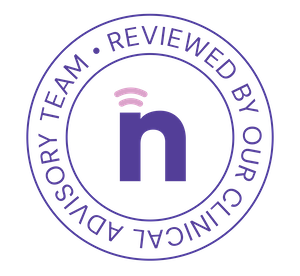Why Breaking Up (With Breastfeeding) Is Hard To Do

Breastfeeding is an intimate, nurturing experience that bonds you to your child. It is a unique period filled with challenges, triumphs, and profound emotional connections. However, all breastfeeding journeys eventually come to an end.
If you are considering weaning your baby from the breast, it may be for various reasons. Maybe your baby is showing less interest in breastfeeding, displaying signs of wanting to explore and taste new foods. You may have personal health or lifestyle reasons to call it quits. Whatever your reason for weaning may be (and all are valid!), it’s important to know that the transition can be surprisingly emotional and even physically challenging for many moms. In fact, for some mothers, it can lead to depression and/or anxiety. Understanding the emotional and physical factors at play can help make the break-up with breastfeeding smoother and less painful.
The emotional impact of weaning
When it’s time to wean, whether by choice or necessity, you may experience a whirlwind of emotions. From sadness and loss to relief and freedom, it’s a complex mix that can catch you off guard. The end of breastfeeding marks the closing of a significant chapter in you and your baby’s life. It’s not just about the physical act of nursing; it’s about letting go of a unique form of closeness and dependency.
The process of weaning can also trigger feelings of guilt or doubt. Questions like “Am I doing this too soon?” or “Am I being selfish?” are common. It’s important to remember that weaning is a natural progression in your child’s growth and your relationship with them. The bond you’ve formed through breastfeeding will not diminish; it will simply evolve into new forms of connection and affection.
Weaning a baby may also make you feel like you’re having a bit of an identity crisis, as you transition from being his or her primary source of food and comfort. Finding new ways of bonding, like walking or playing, can stir feelings of sadness and worry about your significance in your child’s life. It’s vital to remember that your baby still needs you deeply, and this change marks an opportunity to explore and establish new forms of connection and purpose.
Understanding the role of hormones
The two primary hormones associated with breastfeeding also help regulate our moods. One is prolactin, which stimulates milk supply and helps you sleep. The other is oxytocin, which is released when your milk lets down and floods you with feelings of love — hence it is often referred to as the “love hormone”. When breastfeeding ends, both prolactin and oxytocin drop to pre-pregnancy levels, and any protective effects against mood disturbances may be lost.
Combined with the psychological stress of weaning, the drop in hormones can lead some mothers to experience post-weaning depression, symptoms of which can include anxiety, hopelessness, irritability, and insomnia. There is not a lot of research or awareness about post-weaning depression, but it has been noted in scientific studies on postpartum health as far back as 1988, and there has been an uptick in media coverage about this phenomenon. More research on the effect of breastfeeding cessation on Perinatal Mood and Anxiety Disorders (PMAD) is needed. (See additional article links below.)
Tips for weaning
Just being informed about post-weaning depression and anxiety can help you plan for this transition process. Knowing that you will go through hormonal and emotional changes is a great first step. Here are some other tips for navigating the weaning process.
- Take it slow. Try dropping a breastfeeding session every few days, decreasing the time spent on a session daily, or even one session a week at first, to see how you feel both physically and emotionally. While post-weaning depression can still occur when you wean very gradually, it’s more likely to happen when you wean suddenly. Start by going easy on your hormones!
- Acknowledge your feelings. It’s okay to feel sad, anxious, relieved, or even conflicted. These emotions are a natural part of the transition. Permitting yourself to grieve the loss can be a healing process.
- Seek support. You don’t have to navigate this transition alone. Reach out to significant others/partners, friends, family, lactation consultants, or breastfeeding support groups who can offer empathy and understanding. Sharing your experiences with others who have gone through the same thing can be incredibly comforting. If you’re struggling with intense feelings of sadness, depression, or anxiety it might be helpful to speak with a healthcare provider or therapist. They can offer strategies and support to help you navigate this challenging time.
- Create new bonding rituals. As breastfeeding ends, find new ways to bond with your child. Reading books together, cuddling during story time, or establishing a new bedtime routine can help maintain that close emotional connection.
- Take care of your physical health. Exercise, even gentle forms like walking or yoga, can boost your mood and help regulate your hormones. Eating a balanced diet and ensuring you get enough rest is also crucial during this transition.
The end of breastfeeding is a significant milestone, marking the end of an intimate chapter and the beginning of a new phase of independence for both you and your child. Remember, it’s okay to seek support and create new ways to connect and bond with your child. This is not the end of your journey together, it’s simply the start of a new chapter.
Additional Resources
Post-Weaning Depression Is a Thing, And It’s Time We Start Talking About It (Parents)
Depression after weaning can be a serious concern for some new moms (Washington Post)
Post-Weaning Depression: Symptoms, Causes, & How to Cope (Choosing Therapy)
Breastfeeding cessation and symptoms of anxiety and depression: a longitudinal cohort study (BMC Pregnancy and Childbirth)
Beyond Postpartum Depression: New thinking about anxiety and depression in moms (Child Mind Institute)
